India Faces Historic Choice
With roughly 900 million registered voters, India is by far the world’s largest democracy – and this democracy is currently holding elections during a period from April 11 to May 23rd.
It’s important that all of us keep up to date with important global events – and the Indian elections may be the most globally impactful event of 2019 — so here is an attempt to present an unbiased, accurate, and comprehensible summary of Indian politics.
The Indian political system is quite confusing, especially to those who are only familiar with American politics. Firstly, India is a parliamentary democracy. The President of India has no real power – instead, power is vested in the Prime Minister’s Office, currently held by Narendera Modi.
India’s parliament consists of two bodies – the Lok Sabha (akin to the US House of Representatives), with 545 seats, and the Rajya Sabha (akin to the US Senate), with 245 seats.
The two bodies have similar powers, but in the 2019 election cycle, only the Lok Sabha seats are up for grabs, and these seats ultimately select the Prime Minister. Rajya Sabha seats are never directly elected by the people, and are instead selected by the various Indian states.
India’s elections are not held in one day, but rather in seven phases, with the first phase having begun on April 11. Each Lok Sabha constituency holds their election on a different phase; though many of India’s states hold elections for all of their respective seats on the same day.
The elections are held in this manner largely due to security reasons. Previously, when India held the entirety of its election on a single day, violence at the polls was a regular occurence and voter intimidation was common.
India’s multistage election allows for paramilitary forces to guard polling booths and be shuffled around the country over each phase of the election. On May 23rd, all votes will be counted, and the election results will be released.
Like many other Parliamentary Democracies, India is not bound by a two-party system. India has several thousand political parties, 36 of which are powerful enough to hold at least one seat in the Lok Sabha. These political parties have, nevertheless, crystallized into two alliances based on a general liberal-conservative divide.
The liberal alliance is led by the Indian National Congress (INC) and Rahul Gandhi. The INC has been led by the Gandhi family since its inception, though it is important to note that this Gandhi family bears no connection to Mahatma Gandhi.
The INC has been in power for the majority of India’s history, a total of 49 of the 72 years since Indian independence in 1947, and has generally stood for secular values and liberal economic policies.
The INC currently stands in opposition, holding only 44 Lok Sabha seats after a disastrous 2014 election, where the Indian electorate largely viewed the INC as stagnant and corrupt.
The conservative alliance is led by Narendera Modi’s BJP, the largest political party on Earth. The BJP is a conservative party – one that espouses free markets and favors a government based on Hindu principles.
The BJP gained national power in 2014, led by the inspiring story of Modi, who rose from selling tea on railway platforms in his youth to becoming the Prime Minister of India. The BJP currently holds 282 seats in the Lok Sabha.
Supporting each of these two parties is a cohort of alliance partners. The INC leads the United Progressive Alliance (UPA), a coalition which includes social democrats, as well as pro-Muslim parties and the Communist Party of India.
The BJP leads the National Democratic Alliance (NDA), which comprises mainly of nationalistic and populist parties – be it the AIADMK of Tamil Nadu or Maharashtra’s Shiv Sena.
The formation and expansion of political alliances is key in India’s elections, since alliances will often coordinate which party runs for which seat in order to avoid splitting votes between similar ideologies.
The outcome of this year’s elections will revolve around two primary issues: economic strength and nationalism. India’s economy has grown at an impressive pace since Modi came to power, and the Modi government has launched numerous ambitious initiatives, such as the Made in India campaign and the Startup India campaign.
Perhaps most impressive is the “Clean India” campaign, which aims to build hundreds of millions of toilets and improve public health. The BJP’s 2019 manifesto includes similar pledges to improve access to the internet for all Indians, vastly improve roads in rural areas, build 60,000 kilometers of highway in five years, and double the number of airports in the country.
But the Modi economy has also suffered significant obstacles. In 2016, India demonetized two bank-notes in order to curtail illegal activities and black-market transactions. Droves of people – especially farmers – suffered in their attempts to exchange their banknotes, and long queues formed at rural banks.
The long-term effects of demonetization are to be determined, but the short-term pain wrought by the policy is undeniable. India’s unemployment rate is currently 6.5%, the highest in 40 years, and income inequality is skyrocketing.
In order to address these problems, the Indian National Congress has numerous economic proposals – such as giving the poorest 20% of Indian families an equivalent of 1200 USD per year, and a promise to lift 100 million people out of poverty by 2024.
The INC’s proposals also include universal healthcare, a government effort to create hundreds of thousands of public sector jobs, and simplifying/reducing the Goods-Sales tax.
India’s elections are not only a conflict about the future of India’s economy, but also a debate regarding the future of India’s soul. This is most obviously seen in the Ram Mandir Temple issue – essentially, a debate on whether or not to build a temple on an important Hindu site, which was previously a mosque until it’s demolition by 200,000 Hindus in 1992.
The BJP has repeatedly pledged to construct a Hindu temple on the Ram Mandir site, whereas the more secular INC has no official stance on the issue.
Another such issue is the legality of beef in India – cows are sacred to Hindus, and pro-BJP governments in various Indian states have attempted to ban beef. This issue is exacerbated by the fact that the majority of beef-producing businesses in India are owned by Muslims.
As India is an 80% Hindu country, with a significant Muslim minority of 14%, the conflict between majoritarian Hindu policies and secular policies (which are often interpreted as pro-Muslim by Hindus) will continue to grow.
Beachwood Perspectives
Beachwood is home to quite a large number of Indian-Americans, with varying political opinions.
Some, such as current Junior Aadi Dutt, support Modi’s leadership.
“[I support his] strong leadership and pro-growth policies,” he said.
“Domestically, BJP has what it takes to improve the Indian economy, but their nationalism risks war with Pakistan,” freshman Vidula Jambunath said.
Others are concerned about the “communalism and hatred” – not on behalf of Modi, but on behalf of his supporters.
“Economic development is one thing, but when Muslims are being lynched for eating beef, that is a problem,” Beachwood parent Murali Pendheeradi said.
“[I am] mostly concerned about rampant corruption,” Sreyas Pillai said.
Clearly, opinions are as divided among the Indian community in Beachwood as they are in India.



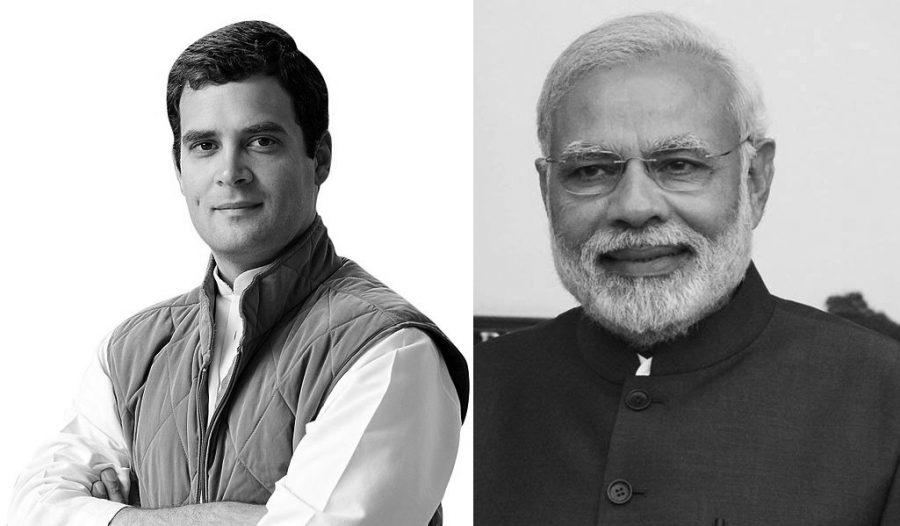

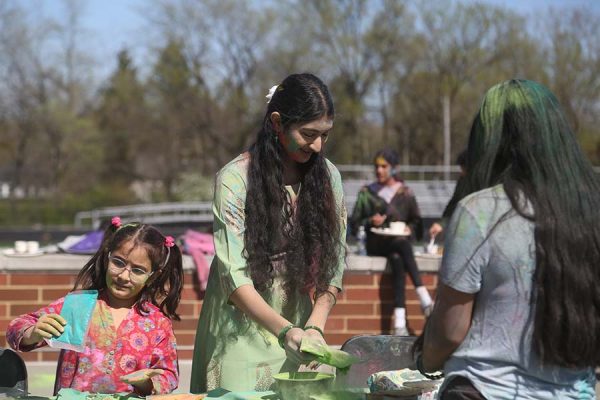
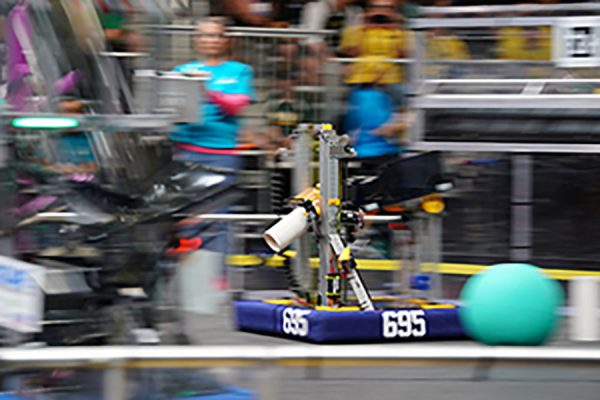
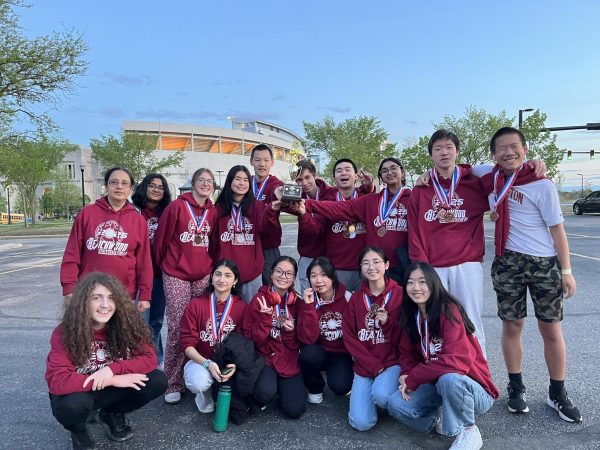
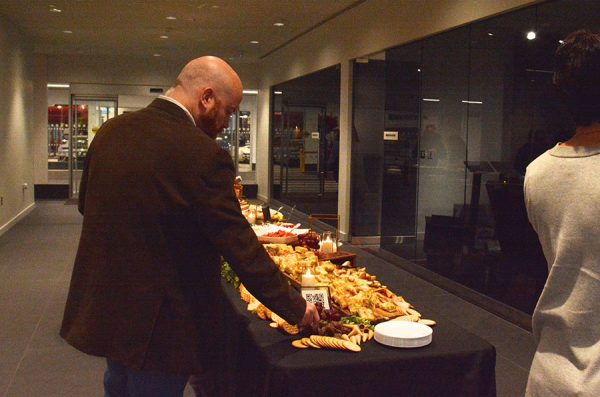





Pallavi Prasad • May 20, 2019 at 8:35 AM
Dear Nikhil,
This is a very well written article.